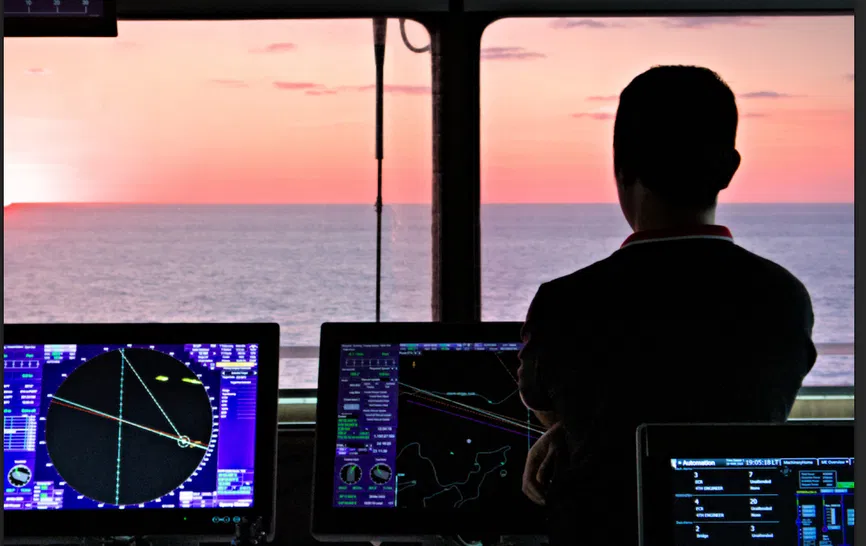Denizcilik Endüstrisi Eşi Görülmemiş Zorluklarla Karşı Karşıya
Denizcilik sektörü, artan belirsizlikler ve risklerle karakterize edilen çalkantılı bir döneme giriyor. Uluslararası Deniz Ticaret Odası tarafından yayınlanan 2024-2025 Denizcilik Barometre Raporu, denizcilik yöneticilerinin karşılaştığı bir dizi acil sorunu vurguluyor. Bunların başında, dünya çapında operasyonel ortamları etkileyen artan siyasi istikrarsızlık geliyor.
Siyasi İstikrarsızlığın Lojistik Üzerindeki Etkisi
2024'te dünya çapında yetmişin üzerinde ulusal seçim planlanmışken, denizcilik lojistiği üzerindeki dalga etkileri önemli ölçüdedir. Nakliyeciler, siyasi çalkantıların ticaret yollarını ve tedarik zincirlerini nasıl etkileyebileceği, küresel nakliye ortamını nasıl belirleyebileceği konusunda güçlü endişeler dile getiriyorlar. Siyasi gerilimler arttıkça, bu sularda gezinmek giderek karmaşıklaşıyor ve lojistik liderlerini öngörülemeyen piyasa koşullarıyla başa çıkmak için dikkatli stratejiler geliştirmeye yöneltiyor.
ICS başkanı Emanuele Grimaldi, bu düşünceyi özlü bir şekilde ifade ederek, "Jeopolitik istikrarsızlık, faaliyet ortamlarımızı yeniden şekillendiriyor" diyor. Bu uyarı, karar alıcıların artan belirsizlik karşısında güven düzeylerinin düştüğünü fark ettiği sektör genelinde yankı buluyor. Denizcilik lojistiğinin bir zamanlar istikrarlı olan dalgaları türbülanslı hale geliyor.
Ticaret Aksama Sigortası: Yeni Bir Güvenlik Ağı
Değişen koşullar ışığında, sektör liderleri öngörülemeyen ticaret engellerine karşı korunmak için Ticaret Aksama Sigortası'na (TDI) yöneliyor. Bu, siyasi istikrarsızlığın sunduğu aktif tehditlere karşı pratik ve ihtiyatlı bir tepkiyi yansıtıyor. Kusursuz bir çözüm olmasa da, TDI şirketlerin kaosun ortasında bir miktar istikrarı koruyabilmelerini sağlamada ayrılmaz bir adımı temsil ediyor. Bu zorluklara uyum sağlamak, lojistikte uzun vadeli başarı için kritik öneme sahiptir.
Siber Güvenlik Tehditlerinin Yükselişi
Siyasi belirsizliklere paralel olarak, denizcilik sektörü artan bir siber güvenlik tehdidi dalgasıyla karşı karşıya. Siber saldırılar artık denizcilik operasyonlarının karşı karşıya olduğu en yüksek ikinci risk olarak kabul ediliyor, çünkü denizcilik ağlarının dijital mimarisi sömürüye karşı giderek daha savunmasız hale geliyor. Devlet destekli kuruluşlar önemli riskler oluşturuyor ve bu da sektör içinde gelişmiş siber güvenlik önlemleri için çağrılara yol açıyor.
Uluslararası Denizcilik Örgütü (IMO), dijital altyapıdaki acil güvenlik açıklarına ilişkin alarmlar çalarak, liderleri potansiyel siber tehditlere karşı savunmalarını güçlendirmeye çağırdı. Lojistik ve nakliye firmaları için sağlam bir siber güvenlik kültürü geliştirmek artık sadece bir son düşünce değil, temel bir girişimdir.
Mevzuat Zorlukları: Bürokraside Yol Almak
Küresel lojistiği etkileyen artan bir idari yük olarak bir düzenleyici değişiklikler dalgası ortaya çıktı. Emisyon ticaret çerçevelerinden gelişen karbon yoğunluğu göstergelerine kadar, armatörler karmaşık uyumluluk gereksinimlerinde yol almak zorundadır. Yeni düzenlemelere uyma ve operasyonel verimliliği koruma arasındaki çarpıcı denge, değişen ortamlarda sorunsuz deniz operasyonlarını sağlamak için hayati öneme sahiptir.
Korumacılık politikaları, operasyonel çerçevelerin ve tedarik zincirlerinin stratejik değerlendirmelerini gerektiren düzenleyici karmaşıklıklarla iç içe geçmiştir. Denizcilik liderleri, lojistik operasyonlarını hem yurt içinde hem de uluslararası alanda optimize etmek için düzenleyici karmaşıklığın bu dalgalarında cesurca yol almalıdır.
Yeşil Ufuk: Denizcilikte Sürdürülebilirlik Çabaları
Çok sayıda zorluğa rağmen, denizcilik sektöründe yeşil bir geçiş odak noktası olmaya devam ediyor. Karbonsuzlaştırma ve sürdürülebilir denizcilik uygulamalarına yönelik itme gücü artmaya devam ediyor. Rapor, sıvılaştırılmış doğal gaz (LNG) gibi geleneksel yakıtlar baskınlığını korurken, metanol ve amonyak gibi alternatif yakıtların denizcilik inovasyonunun ön saflarında ortaya çıkmaya başladığını gösteriyor.
Ancak bu yeşil dönüşüm engelsiz değil. Altyapı ve güvenlik konusundaki endişeler, daha yeşil teknolojilerin yaygın olarak benimsenmesinde önemli zorluklar teşkil ediyor. Sektör paydaşları çevre dostu uygulamalara geçiş konusunda iyimserliklerini dile getirirken, düzenleyici destekte tutarlılık sağlamak ve fon sağlamak çok önemli olmaya devam ediyor.
İklim Zorluklarına Yönelik Tutumlar
İklim krizi, denizcilik lojistiği planlamasına içsel olarak işlemiş durumda ve her seviyede stratejik kararları etkiliyor. Sektördeki liderler, çevresel ayak izlerini tanımalı ve düzenleme ve uyumluluk yaklaşımlarını yeniden tanımlarken sürdürülebilir uygulamalar aramalıdır.
Denizcilik ve düzenleyici kuruluşlar arasındaki artan işbirliği, sürdürülebilir uygulamaların geliştiği bir atmosferi teşvik edebilir. Kamu-özel ortaklıkları, daha dirençli, çevre dostu nakliye çözümleri geliştirmek için umut verici bir yol sağlayarak sektör için daha parlak, daha sürdürülebilir bir ufuk açıyor.
Sonuç: Daha Akıllı Lojistiğe Doğru Yönelmek
Denizcilik Barometre Raporu, sektörün önemli bir dönüm noktasında canlı bir anlatısını ortaya koyuyor. Siyasi istikrarsızlık, siber güvenlik tehditleri, düzenleyici baskılar ve sürdürülebilirlik girişimlerinin bir araya gelerek denizcilik lojistiği için hem önemli zorluklar hem de heyecan verici fırsatlar sunduğunu yansıtıyor. İşbirlikçi planlama ve proaktif önlemler, dirençli, uyarlanabilir bir denizcilik geleceğine doğru bir rota çizmek için hayati öneme sahiptir.
Rapor değerli bilgiler sunsa da, lojistik dünyasındaki kişisel deneyim yoluyla edinilen bilgiyle hiçbir şey kıyaslanamaz. GetTransport.com, günümüzün zorlukları ile yarının çözümleri arasında bir köprü kurarak çeşitli taşıma ihtiyaçlarını karşılamaya hazırdır. Uygun fiyatlılık, küresel erişim ve tüm lojistik talepleri karşılama taahhüdüne odaklanarak, bu karmaşık ortamda yol alanlar için başvurulacak platformdur.
Öngörülemezliğin hakim olduğu bir dünyada, GetTransport.com, lojistik operatörlerinin gereksiz masraflara veya aksamalara yol açmadan bilinçli kararlar almalarını sağlayan dinamik bir ulaşım çözümü sunmaktadır. Küresel kargo taşımacılığının rahatlığını ve güvenilirliğini bugün kucaklayın! GetTransport.com adresinden şimdi rezervasyon yapın.

 Küresel İstikrarsızlık Ortasında Nakliye Endişeleri: Sırada Ne Var?">
Küresel İstikrarsızlık Ortasında Nakliye Endişeleri: Sırada Ne Var?">